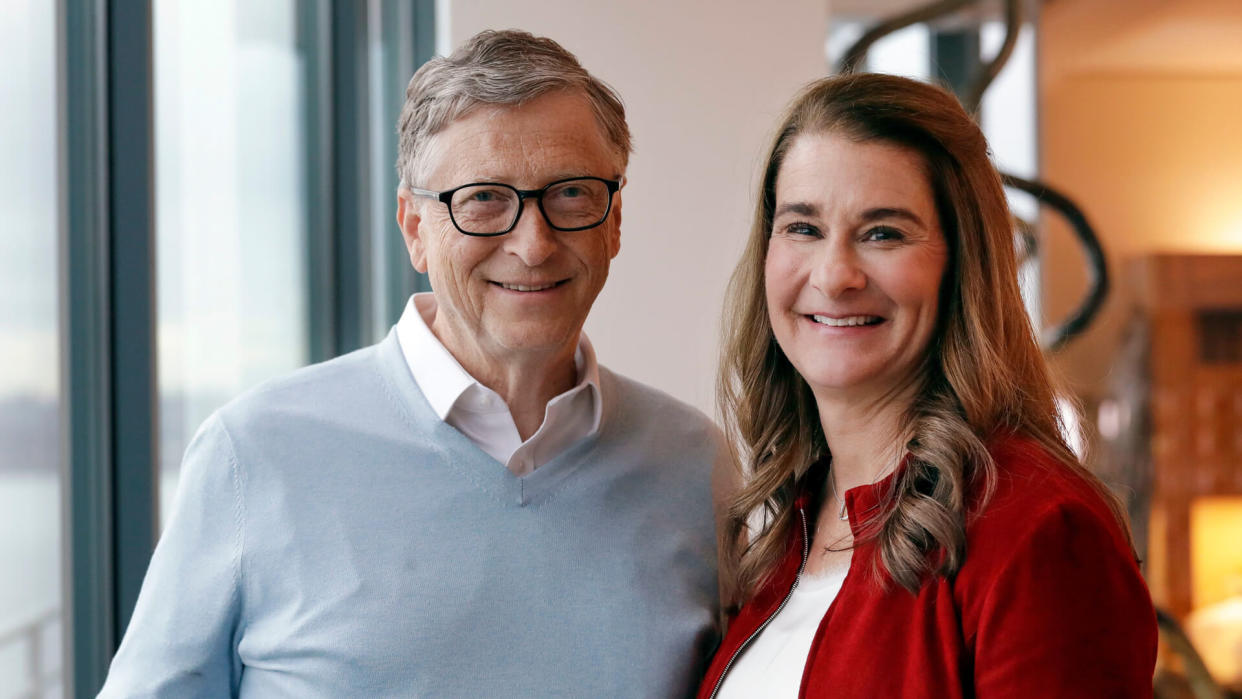Philanthropists Gave More Than $20 Billion to Fight COVID in 2020

Philanthropists gave a whopping $20.2 billion to COVID-19-related causes last year, according to a new report.
Find Out: All the Ways Oprah Gives Back
Learn More: Boston Philanthropist Gives Huge Tips To Help Small Businesses
Corporations accounted for 44% of COVID-19 funding in 2020, a decrease from the first half of the year, when corporate foundations and corporate giving programs accounted for 66 % of funding dollars, according to the report released by Candid and the Center for Disaster Philanthropy.
Corporate giving totaled $9.4 billion, and the largest corporate gift was a $400 million pledge from Wells Fargo, “in processing fees to help small businesses impacted by the ongoing COVID-19 pandemic keep their doors open, retain employees, and rebuild,” according to the report. The pledge also aimed to help nonprofits and Black-owned businesses, committing an initial $28 million to community development finance institutions supporting African-American-owned small businesses.
This report notes that the decline in corporate pledges is to be expected, as they are typically among the first to publicly respond with pledges of support in the immediate aftermath of a disaster or crisis. In the second half of the year, other donors, especially high-net-worth individuals, stepped up to provide additional support.
Funding from independent foundations more than doubled to $4.7 billion from $1.7 billion in the first half of the year, with the Bill & Melinda Gates Foundation continuing to be the top donor. In December 2020, the foundation made an additional $250 million pledge, on top of its earlier commitments, which totaled more than $1 billion, to accelerate the development and equitable distribution of COVID-19 tests, treatments, and vaccines.
The Rockefeller Foundation pledged $1 billion over the next three years for a more inclusive, green recovery from the coronavirus pandemic.
Funding from high net-worth donors stood at 27%, an increase from 13% in the first half of the year. “MacKenzie Scott’s $4 billion for COVID-19 aid dramatically increased the proportion of giving by high-net-worth individuals. Scott singlehandedly accounted for nearly three-quarters of the $5.8 billion. Her high-profile giving was notable not only for its scale but also its approach and relative transparency,” the report notes.
Scott’s large grants to 384 nonprofits in the U.S. were unsolicited and unrestricted, with an intentional focus on organizations working in areas of high poverty and high racial inequity and with low access to capital. One note: Candid’s data collection of gifts by high-net-worth individuals is largely limited to those above $50,000 that have been announced publicly.
“The truths of this moment in time have given rise to hard conversations within philanthropy,” Patricia McIlreavy, Center for Disaster Philanthropy President and CEO said in the report. “No longer is it sufficient to fund band-aid responses to a disaster without exploring root causes–specifically, the structural inequities and systemic discrimination that result in disproportionate impacts on marginalized and underserved communities. Nor is it appropriate to pre-determine a community’s needs and the necessary solutions from afar. Philanthropy’s response to the COVID-19 pandemic demonstrates that not only can donors be exceedingly generous in a crisis, but they can lead through trust and courage.”
Check Out: These 47 Billionaires Got Richer During The Pandemic
Read Next: 4 Investing Lessons the Pandemic Has Taught Us
Funding designated for minorities increased in the second half the year. In the first half of 2020, only 5% of COVID-19-related funding that specified recipients was designated for BIPOC [Black, Indigenous, and people of color] communities, despite these populations being disproportionately affected by the pandemic. Since then, the report notes that 23% of specified global funding was explicitly designated for communities of color; 35% of specified U.S. funding was designated for BIPOC communities; and high-net-worth donors designated the highest proportion of funding for BIPOC communities, at 44%, whereas corporations designated only 11%.
“After the first report, there were questions about whether philanthropic funding would taper down,” Grace Sato, director of research at Candid, said in a statement. “What we see is exactly the opposite–not only did funding stay strong throughout the rest of the year, but we also see promising trends in several categories. It shows that philanthropy can, and is, playing an especially important role in times of crisis.”
More From GOBankingRates
This article originally appeared on GOBankingRates.com: Philanthropists Gave More Than $20 Billion to Fight COVID in 2020

